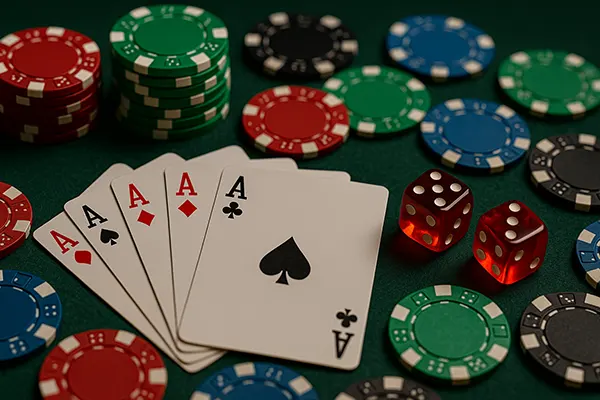
Mathematics of Roulette: Why the Martingale Strategy Fails in the Long Run
The Martingale strategy has been one of the most popular betting systems in roulette for centuries. It promises steady gains by doubling the bet after each loss, aiming to recover previous losses with a single win. However, the mathematical principles behind roulette demonstrate why this strategy ultimately fails over long sessions of play.
The House Edge and Probability Fundamentals
Roulette outcomes are governed by probability, and every spin is independent of the previous one. In European roulette, there are 37 numbers, meaning a nearly 48.6% chance of winning on an even-money bet. The presence of the single zero gives the house a consistent edge of about 2.7%.
This house edge ensures that, over time, the expected return for the player is negative. While occasional winning streaks may occur, they do not change the underlying probability. The longer the player continues, the more likely the house edge will erode their bankroll.
Even if the Martingale method appears to provide short-term gains, it cannot eliminate the built-in mathematical advantage held by the casino. Each bet carries the same expected loss, which compounds over extended play.
The Illusion of Recovery
The Martingale system relies on the belief that a win will eventually occur, recovering all prior losses and producing a profit equal to the initial stake. However, this overlooks the reality of long losing streaks, which are rare but inevitable given enough spins.
For example, losing ten consecutive even-money bets is unlikely but possible, and would require a massive bankroll to continue doubling. Such streaks can wipe out the player’s funds long before the “guaranteed” recovery win arrives.
Mathematically, the risk of hitting a devastating losing streak increases with each additional round, ensuring that the strategy will eventually fail for anyone who plays long enough.
Bankroll Limitations and Table Maximums
Even players with significant bankrolls are constrained by maximum betting limits on roulette tables. These limits exist specifically to prevent the use of progressive betting strategies like Martingale from exploiting small winning probabilities.
When a player reaches the table maximum, they can no longer double their bet, which breaks the system entirely. A single additional loss at this point results in catastrophic losses that cannot be recovered using the Martingale approach.
Because these limits are designed to cap risk exposure, they ensure that no doubling system can sustain itself indefinitely, regardless of the player’s funds or patience.
Exponential Growth of Stakes
The doubling nature of Martingale creates exponential growth in bet sizes. What starts as a small wager can escalate to enormous amounts within only a few losses, placing extreme pressure on a player’s bankroll.
This rapid escalation not only risks financial ruin but also triggers emotional decision-making, which can further reduce the chances of rational play. The stress of massive stakes often pushes players into risky behaviour or quitting under pressure.
Because this exponential structure is embedded in the strategy, it is mathematically unsustainable for long-term roulette play, especially under real-world bankroll and table constraints.

The Role of Variance and Statistical Certainty
Variance plays a critical role in gambling. While short sessions may produce wins by chance, statistical certainty emerges over large sample sizes, and the house edge will always prevail.
Martingale does not alter variance or probabilities. It merely redistributes risk, concentrating all potential losses into rare but enormous outcomes. This skewed risk profile makes eventual failure statistically certain.
Players who understand variance recognise that no betting pattern can bypass the fundamental laws of probability, which dictate that the house retains its advantage in the long run.
Responsible Roulette Strategy
Rather than attempting to beat roulette through systems like Martingale, responsible play involves setting clear limits and treating the game as entertainment rather than income. Accepting that losses are part of the experience helps preserve both funds and enjoyment.
Players should focus on fixed wager sizes and limited session lengths to prevent the psychological and financial stress associated with progressive betting systems. These measures support safer gambling behaviour.
Understanding the mathematics of roulette empowers players to make informed decisions and avoid unrealistic expectations of guaranteed wins from flawed systems like the Martingale.
